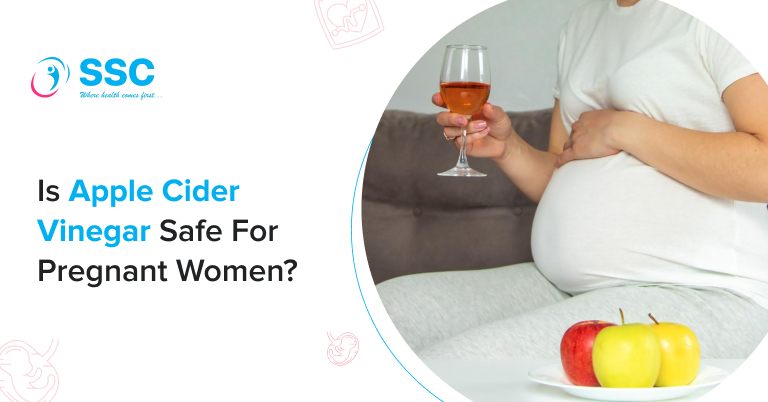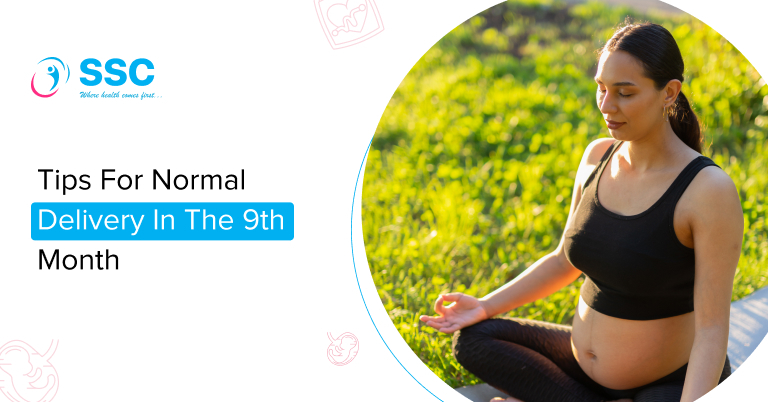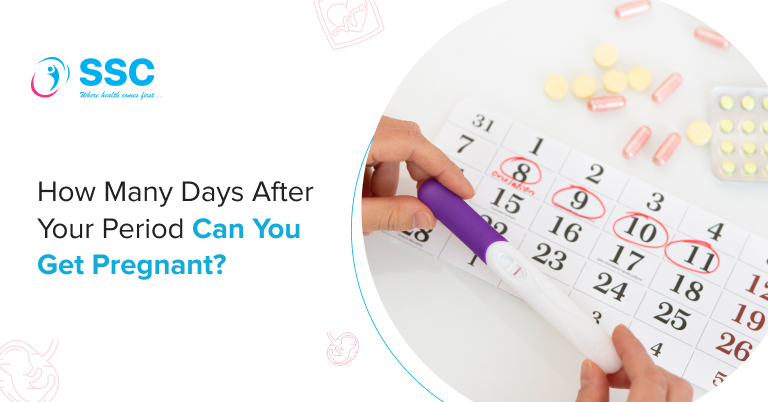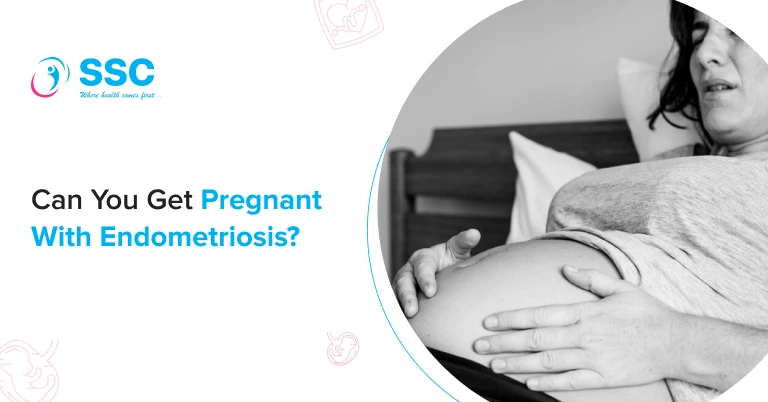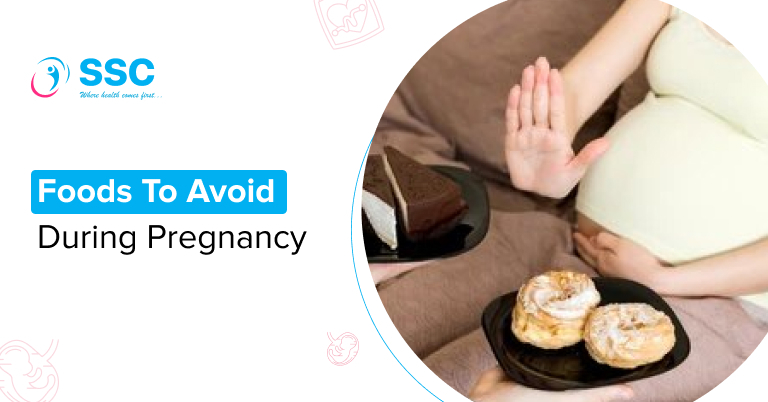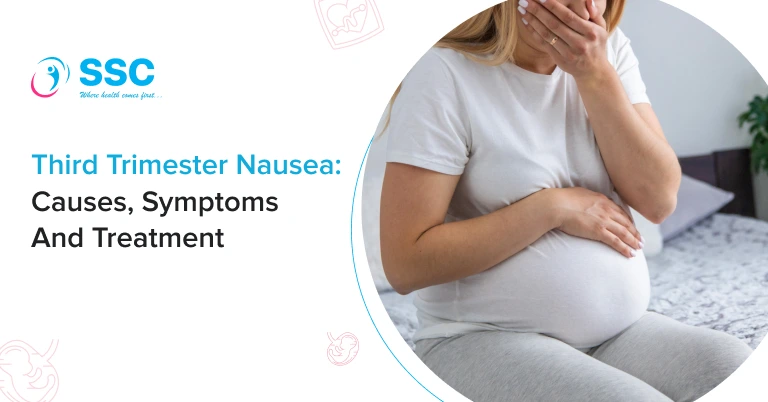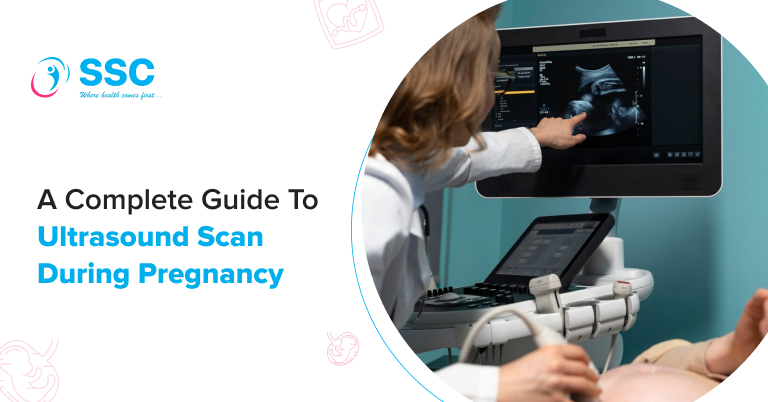Is Apple Cider Vinegar Safe for Pregnant Women?
Your body experiences numerous changes throughout pregnancy, which can lead to discomfort like indigestion, nausea, and heartburn. Many expectant mothers seek treatment through natural remedies such as apple cider vinegar (ACV).
Apple cider vinegar (ACV) is made by fermenting apples and is commonly used as a food ingredient, condiment, and natural remedy.
Unpasteurized ACV retains the “mother,” a collection of beneficial enzymes and probiotics that support gut health. In contrast, pasteurized versions undergo processing to remove these bacteria. While it may be beneficial, it is critical to understand both the advantages and potential concerns before utilizing it at this special time.
This article will address the question, “Can I drink apple cider vinegar while pregnant?” We’ll also discuss its benefits and potential side effects for women and provide some tips on how to consume it safely.
What is Apple Cider Vinegar Made Of?
Apples, water, and natural yeast are the ingredients used to make apple cider vinegar (ACV). Apple juice is first crushed and fermented to produce alcohol from the natural sugars. The following step involves bacteria turning the alcohol into acetic acid, which is what gives ACV its pungent scent and acidic flavor.
Apple cider vinegar comes in pasteurized and unpasteurized varieties. Sediment and bacteria are eliminated during processing to create filtered and pasteurized varieties. Filtered apple cider vinegar is typically pasteurized, while unfiltered apple cider vinegar is often raw and unpasteurized.
Is Apple Cider Vinegar (ACV) Safe for Pregnant Women?
Yes, Apple Cider Vinegar (ACV) is safe for pregnant women when consumed in moderation, but some precautions must be taken. Understanding the advantages and disadvantages of using ACV during pregnancy is essential.
Acetic acid, which is present in Apple Cider Vinegar, is an antibiotic that promotes the growth of certain kinds of beneficial bacteria over others. Pregnant women should use unpasteurized apple cider vinegar with extreme caution and awareness of the risks.
It’s best to check with your doctor before adding apple cider vinegar to your diet, especially if you’re pregnant, have certain medical conditions, or have a weaker immune system. Raw and unpasteurized ACV can be strong and may contain harmful bacteria.
Pasteurized and diluted ACV is usually safe. To make sure that taking ACV while pregnant is healthy for both you and your unborn child, always get medical advice first.
Benefits of Apple Cider Vinegar During Pregnancy
Is apple cider vinegar good for pregnancy? It is beneficial when consumed in moderation and in pasteurized form. ACV may significantly benefit specific pregnancy symptoms or characteristics. Pasteurized apple cider vinegar is thought to be the safest.
Reduces Morning Sickness:
Because of its acidic properties, some people suggest apple cider vinegar as a remedy for morning sickness. It is known that the acids in ACV can help with several other gastrointestinal issues. As a result, it might aid some pregnant women who experience nausea.
Helps with Digestion:
Consuming apple cider vinegar daily can help with detoxification and digestion. Its probiotics support intestinal function, maintain a healthy pH balance, and improve gut health. Preserving gut health and a balanced pH can avoid constipation and acid reflux.
Eases Leg Cramps:
Pregnancy-related leg cramps frequently interfere with sleep, usually due to low potassium levels and the strain the growing uterus puts on the circulatory system. Because apple cider vinegar has a lot of potassium, it might help ease these cramps.
Prevents Urinary Tract Infections (UTI):
Enzymes and minerals included in apple cider vinegar are known to aid in preventing and treating urinary tract infections. You should consult your physician regarding the frequency and amount of ACV.
Helps with Blood Pressure:
The acetic acid in apple cider vinegar decreases blood pressure by reducing the activity of the renin enzyme, which raises blood pressure.
Regulates Blood Flow:
Poor blood circulation can cause varicose veins and swelling of hands and feet. ACV alleviates these conditions by reducing blood flow.
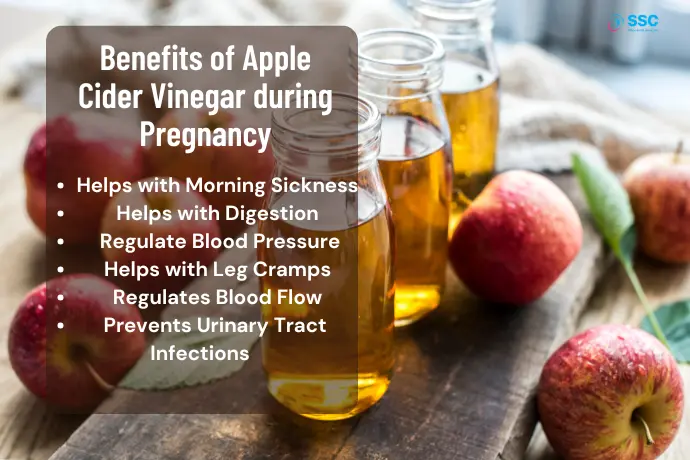
Side Effects of Apple Cider Vinegar (ACV) for Pregnant Women:
Sugar Content and Gestational Diabetes:
Although apple cider contains many vitamins and antioxidants, it also contains many natural sugars. Women should watch how much sugar they consume during pregnancy, especially if they are at risk for gestational diabetes.
Hard Cider:
Additionally, pregnant women should refrain from accidentally taking in any alcoholic varieties of apple cider. Hard cider is not an exception to the rule that even tiny amounts of alcohol are unsafe to consume while pregnant.
Acidity and Heartburn:
Acid reflux and heartburn are common in pregnant women, particularly in the later stages. Apple cider’s acidity can worsen these symptoms, making them uncomfortable. Apple cider’s high acidity can trigger your sensitive digestive system, so it’s better to minimize or stay away from it if you’re prone to heartburn.
Bacterial Contamination:
Unpasteurized apple cider vinegar contains harmful bacteria like Escherichia coli and Listeria. Although these infections may not necessarily cause severe symptoms in healthy people, pregnant women are more at risk for difficulties because of their weakened immune systems.
Can Apple Cider Vinegar Cause Miscarriage in Early Pregnancy?
No, Apple Cider Vinegar (ACV) does not cause miscarriage when consumed in moderation. There is no scientific evidence linking it to miscarriage in early pregnancy. However, it’s usually advised to eat pasteurized foods instead of raw or unpasteurized ones while pregnant.
Raw ACV may carry a slight risk of bacterial infection, which could harm people with weak immune systems, especially expectant mothers.
As a precaution, it’s always a good idea to consult your healthcare provider before adding ACV or any new supplement to your diet during pregnancy. They can provide personalized guidance based on your health needs.
How should Apple Cider Vinegar (ACV) be consumed during Pregnancy?
Apple cider vinegar should not be taken directly because it damages enamel, irritates the esophagus, and might cause other problems. Avoid it if you have gastrointestinal issues. Its extreme acidity can burn or irritate your stomach, so never drink it undiluted.
Instead, dilute it with water in a ratio of 1 or 2 teaspoons ACV to 1 cup of water (240ml). When consuming vinegar during pregnancy, start with a tiny amount to observe how your body responds. Stop taking it if you have any pain or digestive problems.
Anything acidic can cause symptoms for people who have heartburn or reflux connected to pregnancy. Instead of ingesting apple cider vinegar in high, concentrated levels, use it sparingly, such as in salad dressings, to prevent discomfort. Complications are more likely to arise with higher quantities.
When to see the Gynecologist?
See your doctor if you experience these symptoms after consuming ACV:
- Face rashes that are red, itchy, and hot
- Stomach problems, including indigestion or acidity
- Vomiting or nausea
- Dizziness
Is It Possible to Use Vinegar for a Pregnancy Test?
Yes, it is possible to use vinegar for a pregnancy test. The accuracy of this test depends on whether or not a pregnant woman’s urine contains HCG. The urine will turn darker when combined with clear vinegar due to the reaction between HCG and vinegar, making it an easy at-home pregnancy test.
Follow the steps to use vinegar for a pregnancy test:
- Prepare a container for collecting your urine sample in the morning by cleaning and disinfecting it.
- In another container, pour clear vinegar.
- Thoroughly mix the urine and vinegar.
- Give it some time to sit.
- Check for color changes after approximately five minutes. A change in color indicates pregnancy, and no color changes indicate vice versa.
Bottom Line:
A balanced diet, consistent prenatal care, and the safe and limited use of apple cider vinegar can all help expectant moms enjoy pregnancy with improved health. If you are still deciding whether to add vinegar to your diet, kindly consult with your Gynecologist.
Frequently Asked Questions
Is Apple Cider Vinegar safe for pregnant women in the first trimester?
In general, it is safe to consume apple cider vinegar while pregnant. Before including it in your diet, you should speak with a healthcare provider, especially if you have any particular health issues or medical problems.
Can you drink apple cider while pregnant?
Yes, you can drink apple cider vinegar while pregnant. To avoid harmful bacteria, they should boil unpasteurized cider or choose pasteurized cider. Stay away from alcoholic ciders, minimize consumption to control blood sugar, and pay attention to acidity if you are prone to heartburn.
What are the benefits of Apple Cider Vinegar during pregnancy?
Apple cider vinegar helps avoid constipation, enhance digestion, and ease morning sickness. Its potassium content may help maintain good circulation and blood pressure while also relieving pregnancy-related leg cramps. Additionally, ACV may help prevent UTIs, but use it as recommended by your healthcare provider.
Can Apple Cider Vinegar cause miscarriage in early pregnancy?
Whether it is pasteurized or not, there have been no reports of any difficulties or harm related to its use during pregnancy. Apple cider vinegar might help with specific pregnancy symptoms. Remember that the safest type of apple cider vinegar to use is pasteurized.
Is it safe to consume White Vinegar in early pregnancy?
Indeed, when used in moderation, for example, in salads or cooking—white vinegar is generally safe to consume throughout the first trimester of pregnancy. If you have any specific medical conditions or concerns, it is essential to speak with your healthcare professional.

